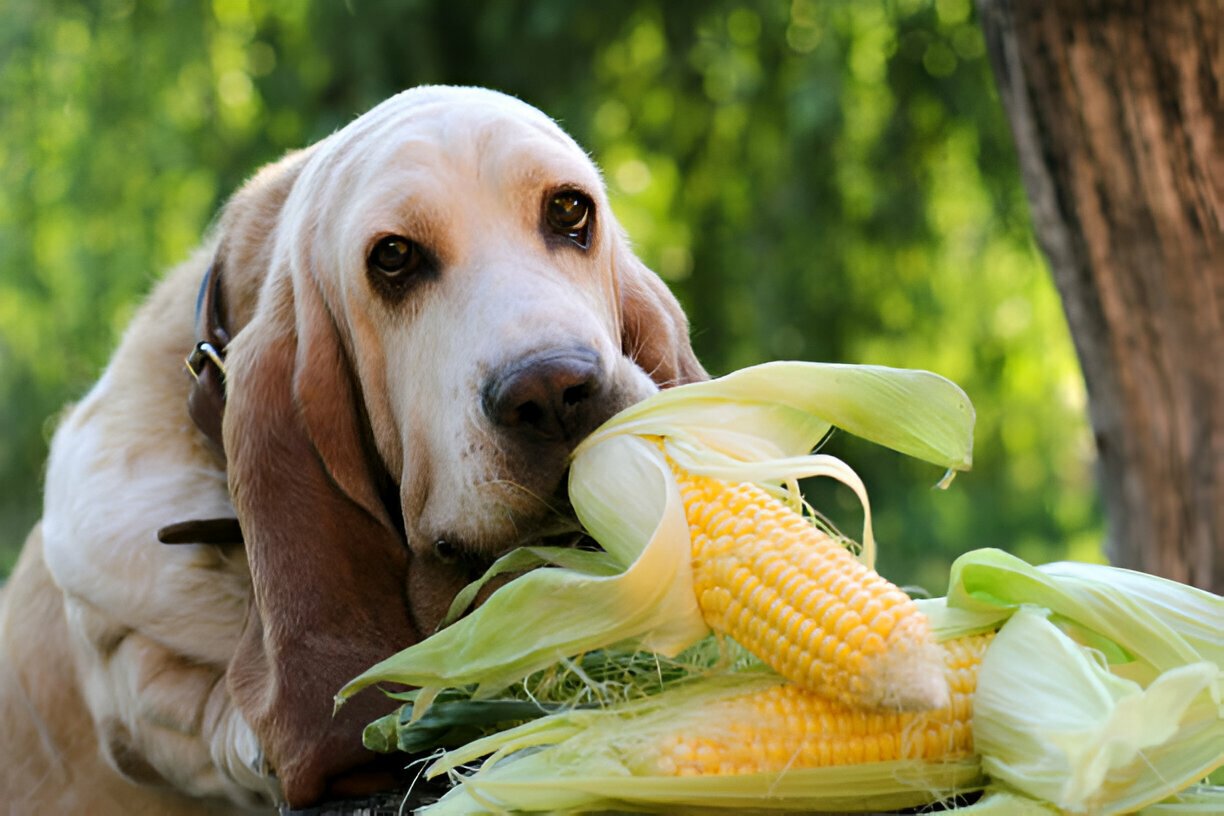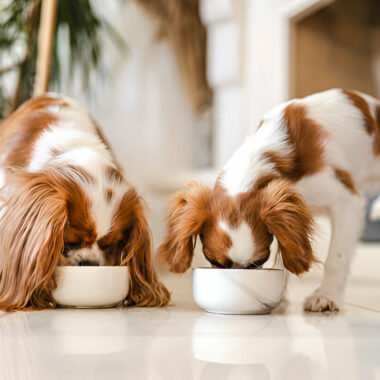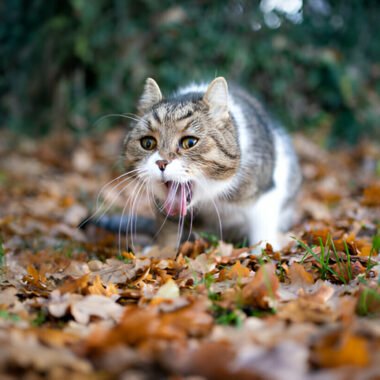Table of Contents
Introduction “Can Dogs Eat Corn?”
As dog owners, we’re always on the lookout for foods that are safe and healthy for our furry friends. One common question that comes up is whether dogs can eat corn. Corn is a staple in many human diets and is often found in various forms in commercial dog foods. But is it truly safe and beneficial for our canine companions? Let’s dive into the world of corn and find out!
Is Corn Safe for Dogs?
The good news is that corn is generally safe for dogs to eat. It’s not toxic and can be a part of a balanced diet. Corn provides some essential nutrients and can be a good energy source for dogs. However, like any food, it should be given in moderation and prepared properly to ensure it’s safe for your pet.
Types of Corn Products
Fresh Corn
Fresh corn kernels are safe for dogs to eat. They are best served cooked and without any seasoning, butter, or salt.
Canned Corn
Canned corn can be fed to dogs, but it’s important to choose a variety with no added salt or preservatives. Rinse the kernels to remove any excess sodium before serving.
Corn on the Cob
Never feed your dog corn on the cob. While the kernels themselves are safe, the cob poses a serious choking hazard and can cause intestinal blockages.
Cornmeal and Corn Flour
These products are often used in dog treats and food. They are safe for dogs and provide similar nutritional benefits as whole corn.
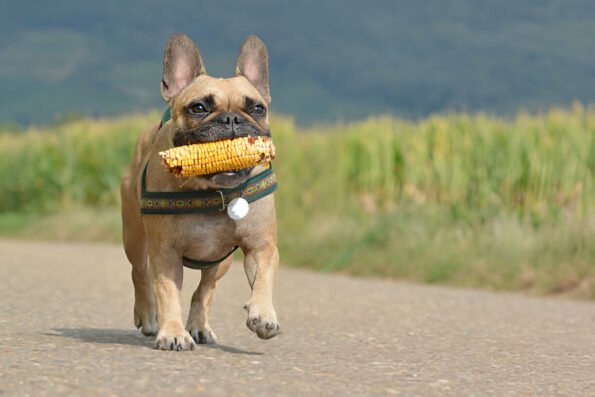
Nutritional Value of Corn
Corn is rich in several vitamins and minerals that can be beneficial to dogs. It contains:
- Vitamins: B vitamins (thiamine, niacin, folate) which are essential for energy metabolism.
- Minerals: Magnesium, phosphorus, manganese, and zinc.
- Fiber: Helps with digestion and maintaining a healthy gut.
- Protein: Contains some protein, though not a complete source by itself.
Benefits of Corn for Dogs
Energy Source
Corn is a good source of carbohydrates, providing a quick and sustained energy boost for active dogs.
Digestive Health
The fiber in corn aids digestion and helps maintain regular bowel movements.
Skin and Coat Health
Corn contains linoleic acid, an essential fatty acid that supports healthy skin and a shiny coat.
Potential Risks of Feeding Corn to Dogs
Allergies
Some dogs may be allergic to corn. Symptoms can include itching, redness, ear infections, and gastrointestinal upset. If your dog shows any signs of an allergic reaction, stop feeding them corn and consult your vet.
Digestive Issues
In large quantities, corn can cause digestive problems like bloating and gas. Always introduce new foods gradually and in moderation.
Corn Cobs as a Choking Hazard
Never give your dog corn on the cob. The cob can easily become lodged in a dog’s throat or intestines, leading to a medical emergency.
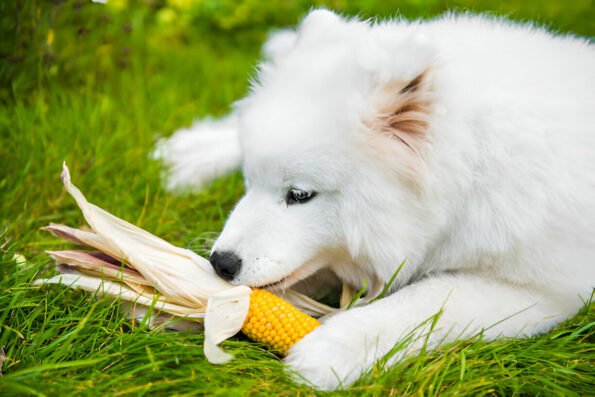
How to Safely Feed Corn to Your Dog
Portion Control
Serve corn in small amounts to avoid any potential digestive issues. A few kernels or a small handful is usually sufficient.
Preparation Methods
Cook corn thoroughly and serve it plain. Avoid adding butter, salt, or other seasonings that could be harmful to dogs.
Monitoring for Adverse Reactions
Watch your dog for any signs of allergies or digestive discomfort after eating corn. If you notice any adverse reactions, discontinue feeding and seek veterinary advice.
Corn in Commercial Dog Food
Why Corn is Used
Corn is a common ingredient in many commercial dog foods because it’s inexpensive, readily available, and provides a good source of energy and nutrients.
Types of Corn Ingredients in Dog Food
You might see corn listed as whole grain corn, cornmeal, or corn gluten meal on dog food labels. Each form offers different benefits and nutritional profiles.
Common Myths About Corn in Dog Food
Corn as a Filler
Some people believe corn is just a cheap filler with no nutritional value. However, corn does offer important nutrients and can be part of a balanced diet.
Corn Causing Allergies
While some dogs are allergic to corn, it’s not as common as many think. Other ingredients are more likely to cause allergies.
Nutritional Adequacy of Corn
Corn provides essential nutrients, but it should be part of a diverse diet to ensure your dog gets a full range of nutrients.
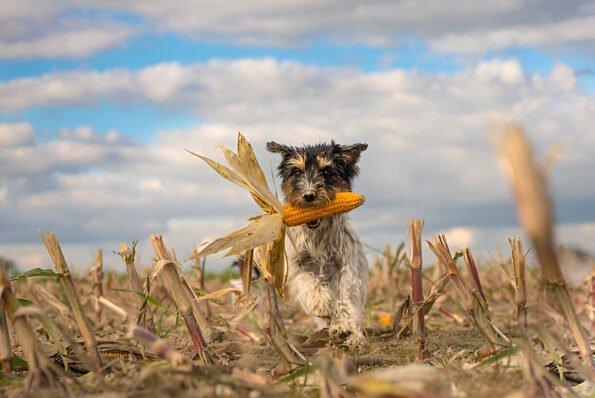
Corn Allergies in Dogs
Symptoms of Corn Allergies
Look out for symptoms like itching, redness, ear infections, and gastrointestinal issues.
Diagnosis and Testing
Your vet can perform tests to determine if your dog has a corn allergy. An elimination diet might also be recommended to identify the allergen.
Managing a Corn Allergy
If your dog is allergic to corn, you’ll need to avoid all corn products and find alternative ingredients to ensure a balanced diet.
Alternative Grains for Dogs
If corn isn’t suitable for your dog, consider these alternatives:
Rice
Rice is easy to digest and a good source of energy.
Oats
Oats are high in fiber and can support digestive health.
Barley
Barley provides essential nutrients and is also gentle on the stomach.
Recipes for Homemade Dog Treats with Corn
Simple Corn Treat Recipe
Mix cornmeal with water and a little bit of peanut butter. Form into small balls and bake until firm.
Healthy Cornmeal Biscuits
Combine cornmeal with whole wheat flour, eggs, and chicken broth. Roll out the dough, cut into shapes, and bake.
Corn and Chicken Treats
Mix cooked chicken pieces with cornmeal and a beaten egg. Form into patties and bake until cooked through.
Veterinary Opinions on Corn for Dogs
Professional Guidelines
Most veterinarians agree that corn can be a part of a dog’s balanced diet, provided it’s given in moderation and your dog isn’t allergic.
Studies on Corn’s Impact
Studies have shown that corn can be a beneficial ingredient in dog food, contributing to overall nutrition and health.
Conclusion
Corn can be a healthy and safe addition to your dog’s diet when fed in moderation and prepared correctly. It’s important to be mindful of potential allergies and always consult with your veterinarian if you have concerns. With the right approach, corn can offer various nutritional benefits that contribute to your dog’s overall well-being.
FAQs Can Dogs Eat Corn?
Can puppies eat corn?
Yes, puppies can eat corn in small amounts. Ensure it’s cooked and unseasoned.
Is corn syrup safe for dogs?
No, corn syrup is high in sugar and can lead to obesity and dental issues in dogs.
Can corn cause weight gain in dogs?
Yes, if fed in large quantities, the high carbohydrate content can contribute to weight gain.
Should corn be a regular part of a dog’s diet?
Corn can be included as part of a balanced diet but should not be the main component.
Are there specific breeds that should avoid corn?
No specific breeds need to avoid corn, but individual dogs with allergies or sensitivities should steer clear.

